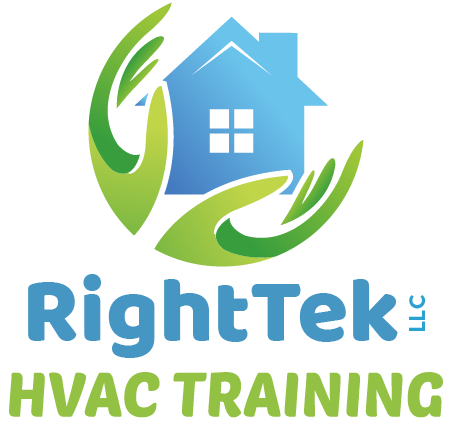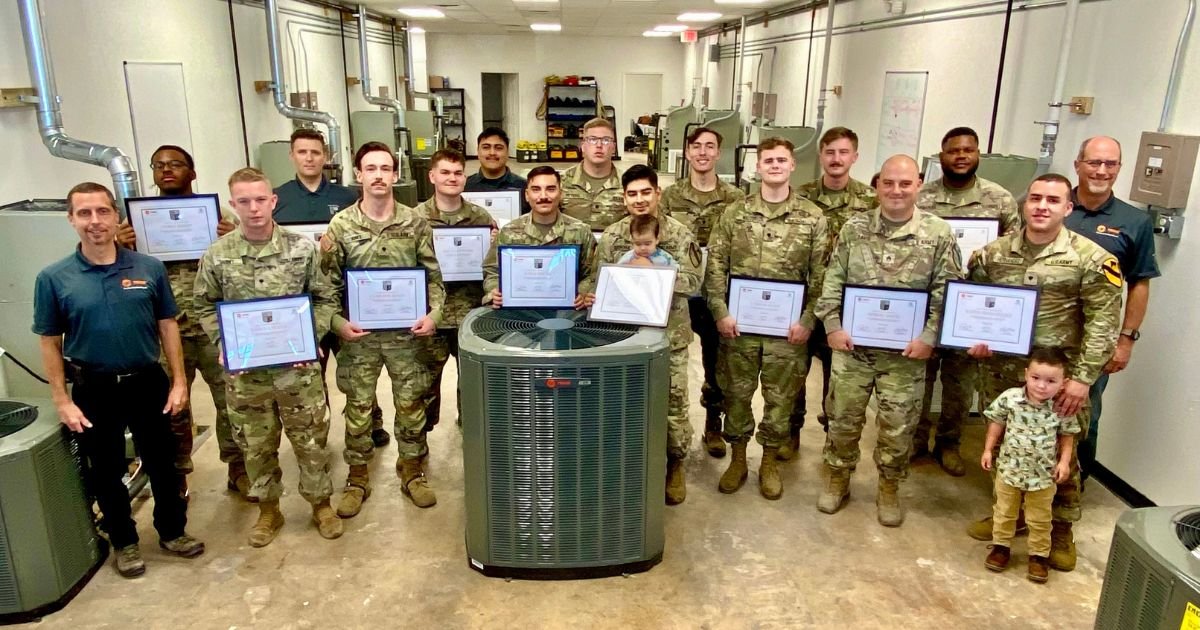Preparing for Civilian Life After Military Service
Service members face a major turning point when leaving the military. While they encounter exciting opportunities, transitioning into civilian life also brings numerous challenges. Many veterans struggle to navigate the civilian workforce, understand their benefits, and determine their career path.
Early preparation is essential. Utilizing SkillBridge programs and obtaining important documents such as the DD 214 lays the foundation for a smooth transition. This guide provides practical steps to help military personnel develop effective exit strategies, secure job opportunities, ensure financial stability, and maintain personal wellness.
Understanding the Importance of Transition Planning
The military separation process requires thorough advance preparation. Many service members fail by postponing transition planning until the last minute. The most effective strategy begins 12–24 months before separation.
Key Areas to Focus On:
- Employment and Career Training: Job placement professionals help explore employment opportunities, educational training, and professional qualifications.
- Education: The GI Bill provides financial support for higher education and vocational training.
- Healthcare and Benefits: Understanding VA healthcare, disability benefits, and insurance options.
- Financial Readiness: Covers budgeting strategies, tax education, and retirement planning.
- Networking and Support Systems: Veteran organizations and mentor partnerships provide valuable guidance.
Planning early ensures a smoother transition to civilian life with fewer difficulties.
Obtaining and Understanding Your DD 214 Form
The DD 214 Certificate of Release or Discharge from Active Duty serves as a crucial record during your transition. It is required for:
- Applying for VA benefits
- Securing civilian employment (many employers request it)
- Accessing government programs
- Qualifying for veteran discounts and services
Avoid Delays in Receiving Your DD 214
The DD 214 is essential for accessing benefits, securing jobs, and verifying service. Delays in obtaining it can disrupt your plans, so proactive preparation is key.
Tips to Minimize Delays:
- Request Early: Start requesting your DD 214 at least 6 months before separation.
- Follow Up: Regularly check with your personnel office to ensure timely processing.
- Get Extra Copies: Request multiple certified copies for job applications, benefits, and programs.
- Use Digital Access: Request a digital copy via eBenefits or the National Archives website.
If You Lose Your DD 214:
- Request a replacement via the National Archives or VA.gov using Standard Form 180.
- Contact a Veteran Service Organization (VSO) for assistance.
Plan ahead, stay organized, and secure your DD 214 to ensure a smooth transition into civilian life.
Note: Members of the Reserves or National Guard may receive a DD 256A Honorable Discharge form, which verifies military service but does not offer the same benefits as the DD 214.
Leveraging the SkillBridge Program for Career Preparation
Active-duty military personnel gain valuable civilian work experience through the SkillBridge program, which provides hands-on training via internships and apprenticeships in various industries. During the final 180 days of service, participants receive uninterrupted military pay while training for civilian careers.
Why SkillBridge is a Game Changer:
- Free Career Training: Service members get paid while training for civilian jobs.
- Direct Employment Pathways: Participants often transition directly into full-time employment.
- Diverse Industry Opportunities: Covers fields like IT, healthcare, cybersecurity, HVAC, and project management.
- Hands-On Learning: Training is practical rather than theoretical.
SkillBridge offers specialized training in high-demand fields such as HVAC (Heating, Ventilation, and Air Conditioning), providing job stability, high earning potential, and career growth. Interested service members should register online or consult their Transition Assistance Program (TAP) counselor.
Do note that not all service members qualify for the SkillBridge program. Approval is contingent on command endorsement, which isn’t 100% guaranteed.
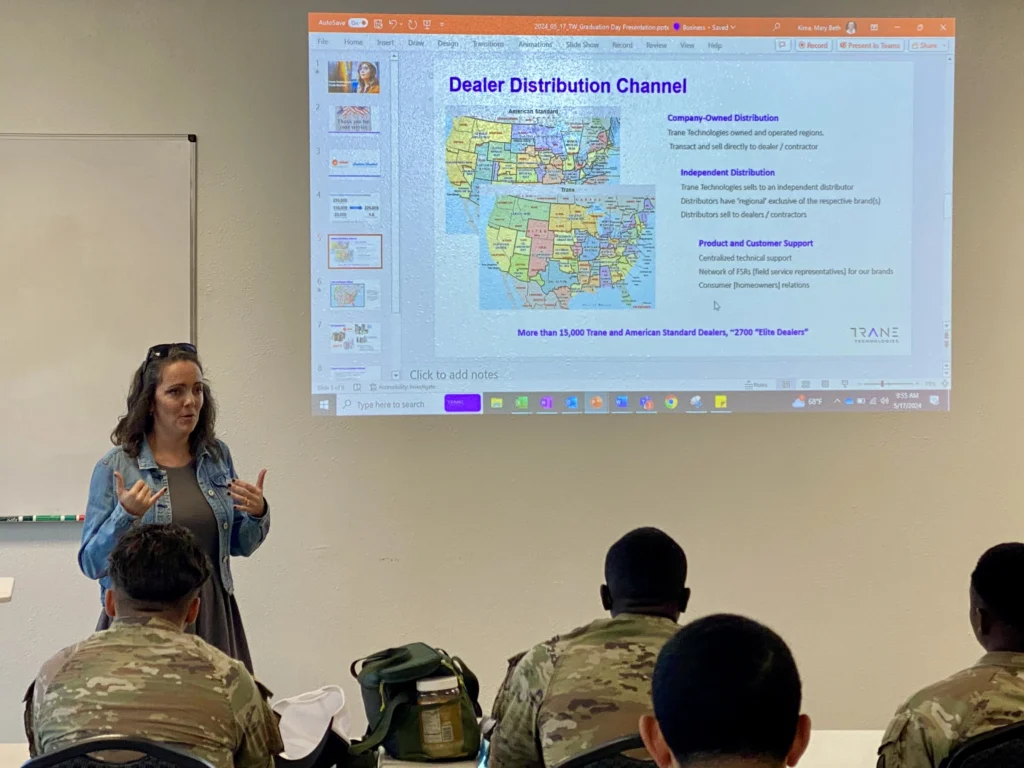
Exploring Career Paths: Why HVAC is a Great Option for Veterans
Many veterans struggle with choosing a career path after military service. Some prefer corporate roles, while others seek hands-on professions with steady employment, advancement opportunities, and competitive salaries. HVAC is an excellent option because:
- High Demand: The HVAC industry is growing due to climate change, ongoing construction, and energy efficiency programs.
- Great Pay: HVAC technicians earn between $50,000–$80,000 per year, with experienced professionals making over $100,000 annually.
- Minimal Schooling Required: Unlike four-year degrees, HVAC certification programs can be completed in months.
- Military Skill Crossover: HVAC roles require mechanical knowledge, problem-solving, and troubleshooting skills similar to military training. Our program specifically helps trainees with no experience at all gain the knowledge they need to transition into HVAC careers.
- Hands-On Work: Ideal for veterans who prefer physical work over office jobs.
Enrolling in a free HVAC training program through SkillBridge allows veterans to gain hands-on experience and secure employment before leaving the military. If you’re considering your options, don’t forget to look at our program to see if it’s a right fit for you.
Enrolling in a free HVAC training program through SkillBridge allows veterans to gain hands-on experience and secure employment before leaving the military. If you’re considering your options, don’t forget to look at our program to see if it’s a right fit for you.
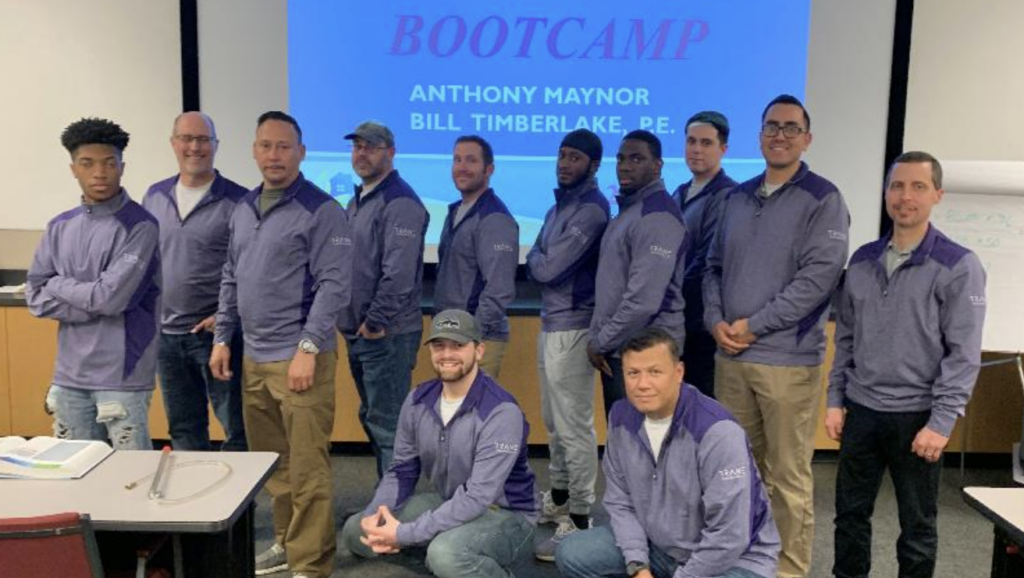
Recap: Quick Checklist for a Successful Transition
- Start Planning Early: Begin your transition process 12–24 months before separation. Leverage programs like SkillBridge and gather essential documents like your DD 214 to set the foundation for success.
- Explore Career Options: Consider industries that align with your skills and interests.
- Take Action Today: Don’t delay your preparation. Additionally, reach out to your Transition Assistance Program counselor to explore all available resources.
A successful transition starts with proactive planning and utilizing the resources available to you. Whether you’re preparing for your next career, securing your benefits, or exploring training opportunities, every step you take now ensures a smoother path to civilian life.
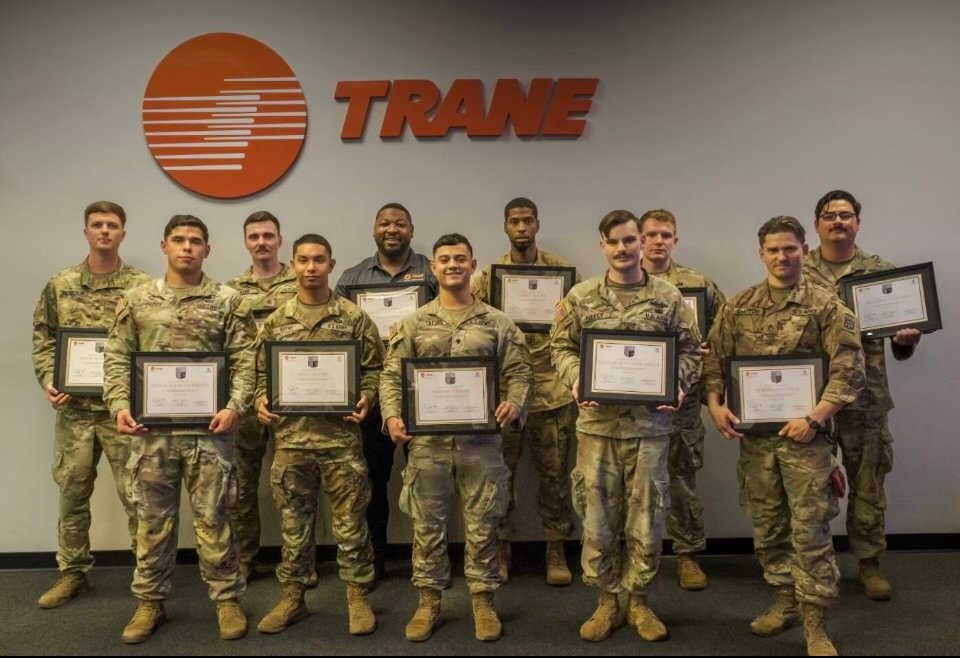
Additional Resources for Military Transition
Here’s a list of resources to help you plan and execute a successful transition to civilian life:
- RightTek HVAC Training Programs: Provides HVAC training programs tailored for veterans, offering hands-on experience and job placement assistance through SkillBridge.
- VA Benefits and Services: Access healthcare, disability benefits, and educational support, and find resources for veterans transitioning to civilian life.
- SkillBridge Program: Offers paid internships and training for transitioning service members during their final 180 days of active duty.
- eBenefits Portal: A one-stop shop for accessing VA benefits, requesting your DD 214, and applying for educational programs.
- National Archives – DD 214 Requests: Request copies of your DD 214 and other military service records.
- Veterans Employment Center (VEC): Connect with employers, job fairs, and resources to help you secure civilian employment.
- GI Bill and Education Benefits: Learn about education and training programs funded through the GI Bill, including higher education and vocational training.
- Military OneSource: Provides free resources, counseling, and support for service members and their families, including transition assistance.
- Hire Heroes USA: Offers free career counseling, resume assistance, and job placement services for veterans and military spouses.
- Veteran Service Organizations (VSOs): The American Legion, VFW, DAV and similar organizations provide a variety of support services, including help with navigating VA benefits, financial aid, and employment resources.
- Facebook & Reddit Communities: Lastly, Facebook and Reddit have several communities centered around helping veterans look and find work, including veterans hiring other veterans.
